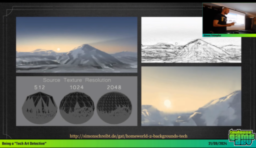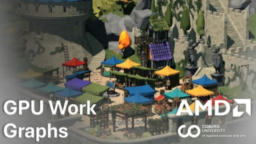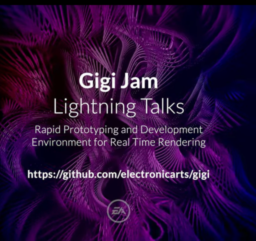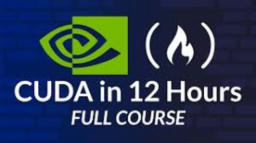- the talk presents an overview of the approach tech artists use to investigate effects in other developers’ works
- shows how to use various tools, such as RenderDoc, Nsight, Intel GPA, etc. to analyze game content
- presents an overview of various techniques from games

Join our speakers in the Netherlands this November for the inaugural Graphics Programming Conference
- the blog post covers which sessions AMD will be presenting at the Graphics Programming Conference this November in Breda (Netherlands)
- brief overview of the content of each talk (Occupancy and Work Graphs)
- as well as which partner talks will be presented

- the video presents a selection of short talks about different techniques and how it was implemented the Gigi framework
- covers Reconstruct Materials (differential rendering), FFT 1D/2D, Gaussian Splat Viewer, Fractal Generation
- each section provides an overview of the technique and shows the implementation

- the blog post provides a brief overview of the state of Vulkan Device Generated Commands
- this extension allows applications to write GPU commands from other GPU shaders
- lists which drivers currently support the extension

General Arcade, a porting and co-development studio that has worked with a wide range of clients, from indies to AAA developers and publishers, including Larian, From Software, Capcom, Devolver Digital, TinyBuild, and others, is seeking a Software Engineer with a rendering emphasis.
This is a great opportunity to work with a passionate engineering team on cutting-edge industry technologies.

- NVIDIA released an interactive and free course about learning OpenUSD concepts
- Broken into modules, it explains the different aspects of OpenUSD in written and video form
- The provided Jupyter notebook gives the ability to explore the concepts in examples
- Starts with the basics and develops into more advanced concepts such as animation and layer ordering rules

- the paper presents an in-depth description of a system for guiding direct light sampling of scenes with hundreds of thousands of lights
- describes how the system can use online learning of visibility estimates and how it’s used for accelerating volumetric scattering cases
- additionally provides insights into the production experience and limitations

- the blog post discusses the limitations of a classic delta time-based approach for animations
- explains why the techniques inherently are limited
- provides a couple of ideas to smooth over the limitations

- the blog post presents an overview of the various 8-bit floating point formats
- shows the limits, precisions, and errors for all possible values in the representations

- free course of 12 hours of content on CUDA development
- presents how to get the system setup, explains the basics of GPU development concepts
- extends the concepts from writing a first CUDA use-case to optimizing matrix multiplications to a full multi-layer perceptron model

Thanks to Jasper Bekkers for support of this series.
Would you like to see your name here too? Become a Patreon of this series.